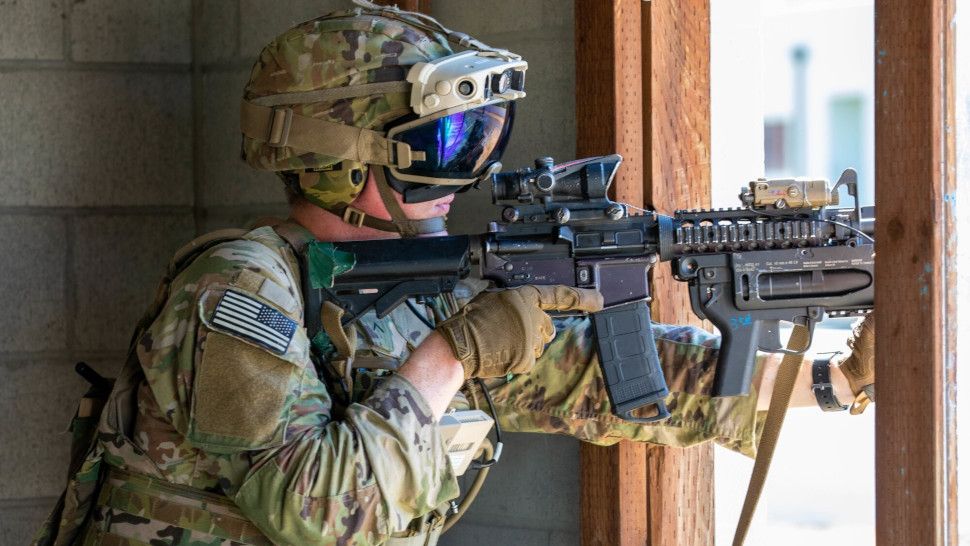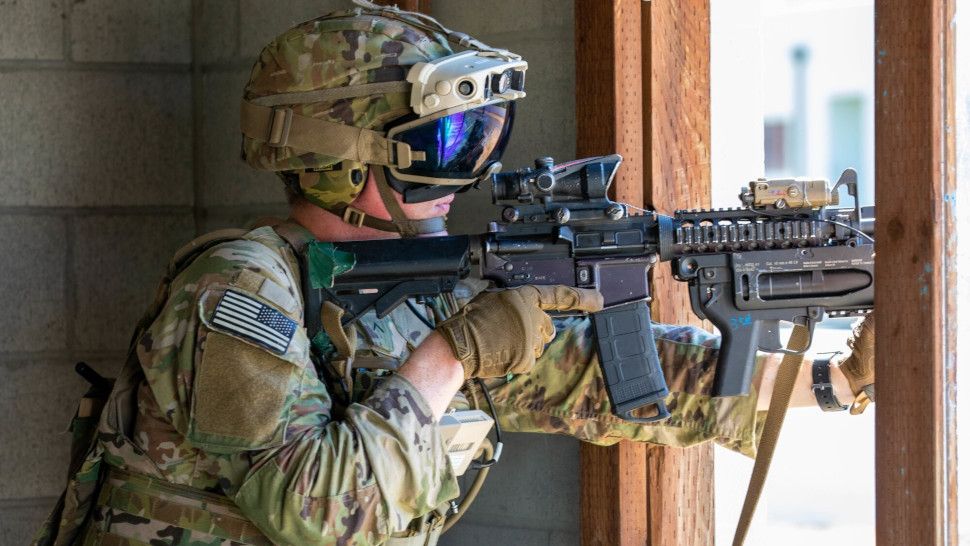
The US Army has seen its first delivery of specially-designed Microsoft Hololens augmented reality headsets.
An order of 5,000 headsets, thought to be worth around $373 million, has been signed off by Assistant Secretary for Acquisition Douglas Bush, Bloomberg (opens in new tab) has reported, following successful field tests (opens in new tab).
The new Integrated Visual Augmentation System (IVAS) units have been heavily adapted from the existing Hololens 2 headsets first released by Microsoft, featuring a heads-up display able to offer high-resolution night, thermal, and soldier-borne sensor data – all powered by Microsoft Azure cloud services.
Hololens IVAS
Microsoft first revealed news of its deal with the US Army back in November 2018, when the company secured a $480 million contract to produce 100,00 specialized HoloLens devices.
This was supplemented in March 2021 with a new partnership which could be worth as much as $21.9 billion for around 120,000 units.
At the time, the company said that the IVAS devices will provide, “a platform that will keep soldiers safer and make them more effective. The program delivers enhanced situational awareness, enabling information sharing and decision-making in a variety of scenarios.”
However, the deal has been met with heavy criticism, both internally at Microsoft and by the wider world as a whole. Company CEO Satya Nadella was forced to defend Microsoft’s work with the US Army back in February 2019, where he said that it would not, “withhold technology from institutions that we have elected in democracies to protect the freedoms we enjoy”.
The company was also criticized for its role in winning the controversial $10 billion Joint Enterprise Defense Infrastructure (JEDI) contract to reinvigorate the cloud network at the Pentagon late in 2020, a victory which still faces multiple legal challenges.
A final test report is now set to be released in October 2022, after which the US Army will decide whether to continue with its purchase.
This report, released at the beginning of the Army’s financial year, will need to be approved by Congress, with the House and Senate appropriations panels already having proposed a significant reduction to the Army’s request, pending the results of the tests.
